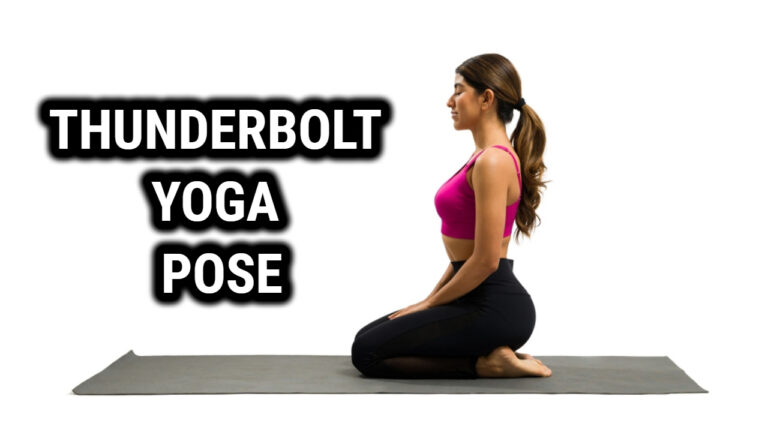What Should Be Avoided After A Yoga Session To Enhance Your Yoga Experience

Practicing yoga can bring a multitude of physical, mental, and emotional benefits. From improved flexibility and strength to reduced stress and enhanced well-being, the rewards of a consistent yoga practice are vast. However, it’s not just during the practice itself that we can reap these benefits – it’s also important to take care of ourselves after a yoga session.
There are certain things to avoid after practicing yoga in order to fully benefit from the practice and take care of ourselves. From heavy meals to strenuous activity, these post-yoga habits can disrupt the body’s natural state of balance and relaxation and may even negate some of the benefits of the practice.
In this article, we’ll discuss the top things to avoid after a yoga session and provide tips for maximizing the benefits of your practice.
Avoid Heavy Meals
One thing to avoid after practicing yoga is eating a heavy meal. While it may be tempting to refuel with a large, satisfying meal, it’s important to consider the state of the body after a yoga session. During yoga, the body is in a state of relaxation and increased blood flow, which can make it more difficult to digest a heavy meal.
Instead of reaching for a large, protein-packed dinner or a greasy takeout meal, it may be more beneficial to opt for lighter options. A smoothie made with yogurt, fruit, and protein powder can provide nutrients without weighing the body down. A light salad with protein-rich toppings, such as grilled chicken or tofu, can also be a good choice.
By choosing lighter options after yoga, you can give your body the nourishment it needs without overloading the digestive system. This can help you feel more comfortable and allow you to fully relax and enjoy the benefits of your yoga practice.
What Should Not Be Eaten After Yoga?
It’s generally best to avoid heavy, greasy, or fried foods after practicing yoga. These types of foods can be difficult for the body to digest, especially in the relaxed state it is in after a yoga session.
Heavy meals may also make you feel sluggish or uncomfortable, which can negate some of the benefits of the practice.
What Should I Eat After Yoga?
It is beneficial to opt for lighter options that are easy on the digestive system. Some ideas for post-yoga snacks or meals include:
- A smoothie made with yogurt, fruit, and protein powder
- A light salad with protein-rich toppings, such as grilled chicken or tofu
- A bowl of oatmeal with fruit and nuts
- A sandwich made with whole grain bread and lean protein
- A bowl of soup with plenty of vegetables and a protein source such as beans or tofu
- It’s also important to stay hydrated after practicing yoga, so be sure to drink plenty of water or other hydrating beverages. Avoiding alcohol and caffeine can also help the body maintain its natural state of balance and relaxation.
Avoid Alcohol And Caffeine
Another thing to avoid after practicing yoga is consuming alcohol and caffeine. While these substances may be a part of your normal routine, they can disrupt the body’s natural state of balance and relaxation achieved through yoga.
Alcohol, in particular, can have a dehydrating effect on the body and can interfere with sleep, both of which can negate some of the benefits of yoga. Caffeine, while not necessarily dehydrating, can also stimulate the central nervous system and may make it more difficult to relax and unwind after a yoga session.
What Should You Drink After Yoga?
Instead of alcohol and caffeine, consider choosing hydrating beverages to replenish fluids and electrolytes lost during practice. Water is always a good choice, but herbal teas can also be a refreshing and relaxing option. Some teas, such as chamomile or lavender, may even have added calming effects.
Avoid Engaging in Strenuous Activity or Exercise.
While it may be tempting to jump back into your regular workout routine or participate in a high-intensity sport, it’s important to give your body time to rest and recover after a yoga session.
Yoga can be physically demanding, and it’s important to allow your muscles and joints to rest and recover after stretching and moving in new ways. Engaging in strenuous activity too soon after a yoga session can increase the risk of injury and may even negate some of the benefits of the practice.
Instead of jumping into a challenging workout or sport, consider choosing low-impact activities or simply taking some time to rest. This could include going for a leisurely walk, practicing restorative yoga poses, or simply relaxing and taking a break.
Avoid Skipping the Cool-Down
One important thing to avoid after practicing yoga is skipping the cool-down. A proper cool-down is essential for preventing injury and allowing the body to transition back to its normal state after a yoga session.
A cool-down can include a series of gentle stretches or relaxation techniques, such as deep breathing or progressive muscle relaxation. These techniques can help the body slowly return to a resting state and may also help to reduce muscle soreness.
It’s important to give the body time to cool down after a yoga session, especially if you have been practicing more challenging or strenuous poses. Skipping the cool-down can increase the risk of injury and may leave you feeling uncomfortable or restless.
Avoid Showering Immediately
It’s generally not recommended to shower immediately after practicing yoga. This is because showering can wash away the sweat and oils that accumulate on the skin during a yoga session, which can actually be beneficial for the skin.
Sweating during a yoga practice can help to flush out toxins and impurities from the pores, and the oils that accumulate on the skin can help to moisturize and nourish it. Showering immediately after a yoga session can strip the skin of these benefits and may even leave it feeling dry and tight.
Instead of showering immediately after a yoga session, it may be better to wait a little while and allow the body to cool down and relax. This can give the skin time to absorb the benefits of the sweat and oils produced during practice.
Avoid Sleeping Immediately
Don’t go to sleep immediately after practicing yoga. This is because the body is typically in a state of increased alertness and energy following a yoga session, and sleeping immediately afterwards can disrupt the body’s natural sleep-wake cycle.
Sleeping immediately after a yoga session may make it more difficult to fall asleep later in the evening, as the body may still be in a state of relaxation and may not be ready to wind down for the night.
Instead of sleeping immediately after a yoga session, it may be better to take some time to transition back to your normal routine and allow the body to gradually return to a resting state. This could include taking a cool-down walk or listening to calming music.
Related Read: Top Tips For Beginners Using Yoga For Weight Loss
Wrapping Up
It’s important to avoid heavy meals, alcohol and caffeine, strenuous activity, and skipping the cool-down after practicing yoga in order to fully benefit from the practice and take care of oneself. By making mindful choices and listening to your body’s needs, you can ensure a positive and rewarding yoga experience.





